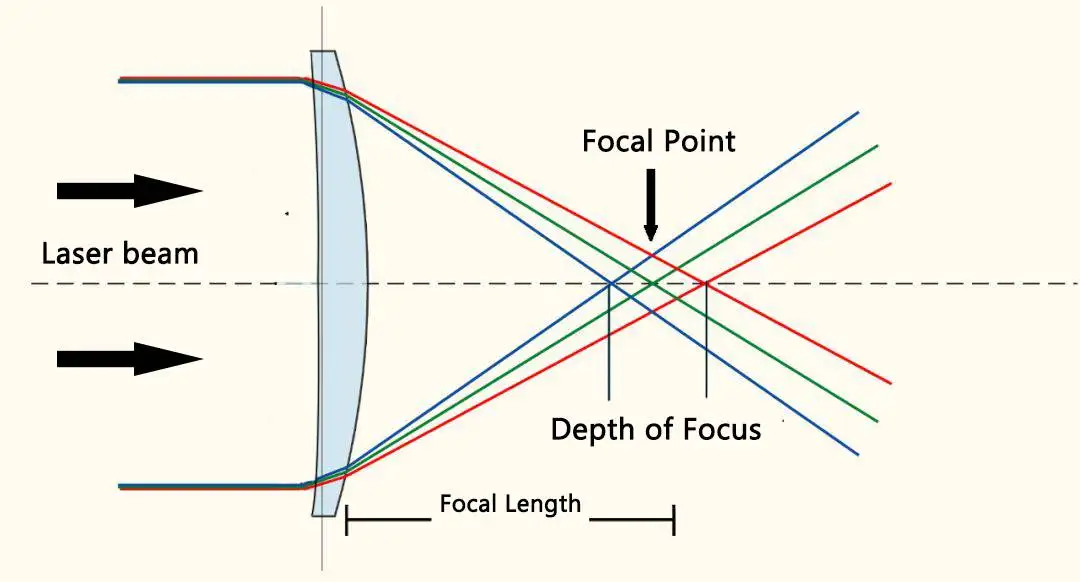Selecting the appropriate laser head can be a key factor in achieving optimal laser effects. The commonly used laser heads for Thunder Laser equipment range from 1.5″ to 4″. The different inches represent the distance between the lens and the laser beam’s focal point.

| Type | Laser dot Size | Focal Distance | Main Function |
|---|---|---|---|
| Standard Laser Head | 0.0039″(0.099mm) | 5.0mm~6.5mm | Cutting material less than 10mm, Engraving photos within 500DPI |
| High Resolution Head | 0.0020″(0.050mm) | 3.0mm~4.0mm | Engraving photos up to 1000DPI, cutting material less than 1mm |
| 4″ Laser Head | 0.0078″(0.198mm) | 9.0mm~11mm | Cutting material more than 10 mm |
For Thunder Laser’s Nova series laser cutting machines, the standard lens is 2.0″, providing balanced performance for both engraving and cutting. It’s the most commonly used laser head.
In general, smaller focal length lenses (1.5″) are better suited for extremely fine details, whereas larger focal length lenses (2.5″, 4.0″) are mainly used for cutting thicker materials due to their deeper focal points.
When to Use Shorter Focal Length (1.5″ or HR) Lenses:
Shorter focal length lenses, like the 1.5″ lens, create a small laser spot at the focus point, enabling very fine detail engraving and high power density. A side effect is that engraving lines might appear more pronounced when working on larger areas, as the spot is small and lines don’t overlap. This can lead to a slightly rough surface and less transparent colors on the engraved material. Increasing the Z-axis offset can help reduce this effect by moving the focus point away and expanding the laser spot.
Using Longer Focal Length (2.5″) for Engraving:
When working with temperature-sensitive materials (such as plastics), a larger spot generates less heat. As a result, it reduces the potential distortion during extensive engraving on large areas.
Using the 4.0″ Lens for Cutting:
For thicknesses exceeding one inch during cutting, using the 4.0″ lens is advantageous to achieve more vertical cutting edges.


.png) International
International
 United States
United States
 Brasil
Brasil
 Canada
Canada
 Costa Rica
Costa Rica
 Česká
Česká
 Ελλάδα
Ελλάδα
 Polska
Polska
 Ireland
Ireland
 Portugal
Portugal
 Lietuva
Lietuva
 Россия
Россия Deutschland
Deutschland
 Britain
Britain
 Україна
Україна
 France
France
 Sverige
Sverige
 Italia
Italia
 Norway
Norway
 Denmark
Denmark
 Romania
Romania
 한국
한국
 中国
中国
 ประเทศไทย
ประเทศไทย
 中国香港
中国香港
 Israel
Israel
 中國臺灣
中國臺灣
 India
India
 پاکستان
پاکستان
 پශ්රී ලංකා
پශ්රී ලංකා
 ジャパン
ジャパン
 Australia
Australia
 New Zealand
New Zealand
 South Africa
South Africa